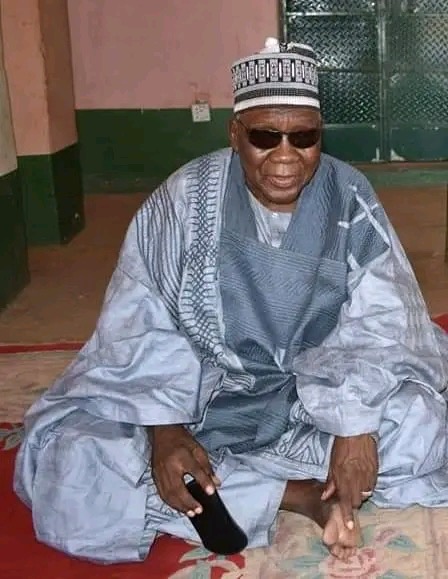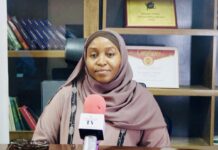Oldies: Govt must heed the cries of the people – Former Rector
Story from, Kasim Isa Muhammad
Bukar Abubakar, a distinguished retired civil servant, educator, philanthropist, farmer, and former Rector of the College of Administrative and Business Studies (CABS) in Potiskum Local Government, has made significant contributions to society, particularly in education. In this in-depth interview with Neptune Prime, he reflects on his journey, offering insights into living a meaningful life.
Neptune Prime: Can you take us back to your formative years? What was growing up like for you, and what are some of your most treasured memories?
I am delighted to reminisce about my childhood. My name is Bukar Abubakar, and I was born in Fika Local Government Area of Yobe State on 20th April 1945. Growing up in a close-knit community, I was surrounded by a loving family and friends who instilled in me the values of hard work, consistency, and compassion.
I attended Fika Elementary School from 1953 to 1956. After completing my elementary education, I gained admission to Senior Primary School in Potiskum LGA, where I studied from 1957 to 1959.
In 1963, I enrolled at Borno Teachers College in Maiduguri, where I spent five years until 1967. That phase was pivotal in shaping my career as an educator. After graduation, I was posted to Damboa Primary School in Potiskum as a classroom teacher in 1968. By 1969, I was promoted to Assistant Headmaster in Fika LGA, and in 1970, I became Headmaster at Kukuri, a community in Yobe. Thereafter, in 1971, I secured admission to Advanced Teacher’s College Kano, where I graduated in 1974, obtaining my NCE. While in 1976, I gained admission to ABU Zaria faculty of Education, where I read Bachelor of Education in 1979. I did my NYSC in 1980 in what is now called Anambra State.
NP: This is impressive, sir. How do you compare education in the past to today?
There are vast differences between the education systems of the past and the present. Back then, classes were much smaller. For example, when I joined Potiskum Senior Primary School, there were only 30 students in my class, and the entire school had just 90 students.
This made learning more personalised and allowed teachers to form meaningful relationships with their students. The curriculum was more focused, and teaching methods were traditional but effective. Today, classrooms are overcrowded, and the quality of education is often diluted.
NP: Nigeria faces many challenges today. What advice do you have for the current leaders?
Leaders must listen to the outcries of the people. The citizens put them in office, and it is their duty to bridge the gap between themselves and the populace. Protests, like the one in August, signal discontent with governance. Issues such as hardship, hunger, and the removal of the fuel subsidy are causing widespread suffering, as prices of essential goods continue to soar.
Leaders need to demonstrate empathy and work towards an inclusive society where every Nigerian has access to basic necessities such as food, shelter, healthcare, and education.
NP: Wise words indeed. Throughout your career, what challenges did you face, and how did you overcome them?
I can confidently say that my challenges were minimal because I stayed away from politics. From 1968 until my retirement as a Rector, I remained focused on teaching and always worked diligently. My dedication to my students ensured that they received quality education, and that commitment shielded me from many challenges others might face.
NP: What lessons have you learned throughout your life?
I’ve learned many lessons, including the importance of patience and embracing differences. As a teacher, I developed the virtues of listening and understanding, as well as recognising that everyone has unique experiences and challenges.
I’ve also learned the value of hard work, dedication, and perseverance. These qualities have been instrumental in my journey from a classroom teacher to a Rector.
NP: You’ve witnessed significant events in Nigeria’s history. Can you share some of your experiences?
When I started school, Nigeria was still under colonial rule. I have lived through the colonial era, the First Republic, military rule, and the return to democracy. One key observation is that Nigeria thrives with good leadership and collaboration among leaders at all levels.
Under military rule, there was price control, better security, and feeding programmes for students, which alleviated hunger and malnutrition. These are policies worth revisiting.
NP: How did you balance work and family responsibilities during your career?
As a teacher, I had a demanding schedule, but I prioritised my family. I made time for them every morning before school and in the evenings. This involved helping my children with their homework, having meals together, and sharing stories. Balancing work and family requires intentionality and effort.
NP: What message would you like to pass on to future generations?
Patience is key. I began my career as a classroom teacher and retired as a Rector. Young people should not be in a hurry to achieve success. Hard work and diligence will always be rewarded.
NP: How do you spend your free time and relax?
I enjoy reading newspapers, watching television, studying religious texts, and spending time with my family. These activities help me unwind and recharge.
Follow the Neptune Prime channel on WhatsApp:
Do you have breaking news, interview request, opinion, suggestion, or want your event covered? Email us at neptuneprime2233@gmail.com





I was read all this scenario through my friend who’s working with you, in person of Kasim Muhammed Isah and learned many lessons here one day I interviewe with Neptune prime by God grace.
Thank you.